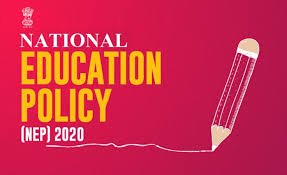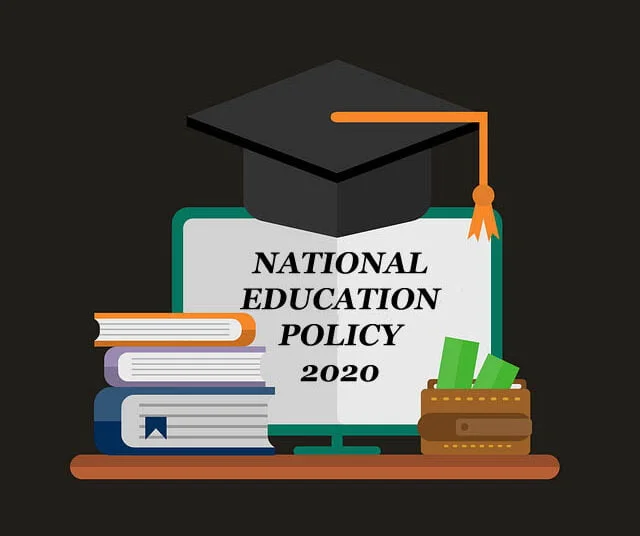Fourth Anniversary of NEP 2020 Celebrated at Akhil Bhartiya Shiksha Samagam 2024
Introduction: Celebrating the NEP 2020 Milestone
The Fourth Anniversary of the National Education Policy (NEP) 2020 was commemorated at the Akhil Bhartiya Shiksha Samagam 2024, a significant event aimed at evaluating the progress and impact of NEP 2020. Held in [City] on [Date], this event gathered educationists, policymakers, and academic leaders to reflect on the strides made in India’s education system since the policy’s introduction.
Achievements of NEP 2020
Since its implementation, NEP 2020 has revolutionized the Indian education landscape by focusing on holistic and multi-disciplinary learning. Key achievements include the introduction of a new curricular structure, emphasis on regional languages, and the integration of vocational education at an early stage. The policy’s approach aims to create a more inclusive and flexible education system that caters to diverse learning needs and prepares students for a rapidly evolving job market.
Key Highlights of the Akhil Bhartiya Shiksha Samagam 2024
The Akhil Bhartiya Shiksha Samagam 2024 featured several notable discussions and presentations. One of the main highlights was the launch of new initiatives to further implement NEP 2020’s goals, including digital learning tools and teacher training programs. The event also spotlighted successful case studies from various states, demonstrating the positive impact of NEP 2020 on educational practices and student outcomes.
Future Directions and Goals
Looking ahead, the focus is on deepening the implementation of NEP 2020 across all educational institutions. Future plans include expanding access to quality education, enhancing teacher competencies, and fostering industry-academia collaborations. The policy aims to bridge gaps in educational equity and ensure that all students receive a well-rounded, relevant education that prepares them for future challenges.
Conclusion: The Path Forward
The Fourth Anniversary of NEP 2020 at the Akhil Bhartiya Shiksha Samagam 2024 underscored the transformative potential of the policy and reaffirmed the commitment of stakeholders towards educational reform. As India continues to advance its educational framework, the insights and initiatives from this event will play a crucial role in shaping the future of education in the country.

Why This News is Important
Significance of NEP 2020
The National Education Policy (NEP) 2020 represents a landmark reform in India’s educational system, aimed at addressing the shortcomings of the previous policies and adapting to the needs of the 21st century. Celebrating its fourth anniversary at a high-profile event underscores the importance of evaluating its progress and realigning strategies to achieve its objectives.
Impact on Educational Practices
NEP 2020 has introduced several reforms designed to enhance the quality of education and make it more inclusive. By focusing on holistic development, multilingual education, and vocational training, the policy aims to create a more equitable and effective educational system. The anniversary celebrations highlight the ongoing efforts to integrate these reforms and measure their impact on educational outcomes.
Public and Institutional Engagement
Events like the Akhil Bhartiya Shiksha Samagam 2024 foster greater public and institutional engagement with NEP 2020. They provide a platform for discussing successes, challenges, and future directions, ensuring that the policy remains dynamic and responsive to the needs of students and educators.
Encouraging Continued Reform
The fourth anniversary celebrations serve as a reminder of the need for continuous reform and adaptation in education. By showcasing progress and setting future goals, the event encourages all stakeholders to remain committed to the objectives of NEP 2020 and to actively contribute to its implementation.
Historical Context:
Introduction of NEP 2020
The National Education Policy (NEP) 2020 was introduced on July 29, 2020, by the Government of India. This policy marked the first major overhaul of the Indian education system in over three decades, replacing the National Policy on Education 1986. NEP 2020 aims to address various issues in the education sector, including outdated curricula, lack of flexibility, and inadequate emphasis on critical skills.
Key Reforms and Objectives
NEP 2020 emphasizes a shift from rote learning to experiential learning, promotes the use of technology in education, and seeks to increase the Gross Enrollment Ratio (GER) in higher education. It also introduces a new curricular structure known as the National Educational Technology Forum (NETF) and focuses on integrating vocational education with mainstream education to enhance employability.
Implementation and Impact
Since its launch, NEP 2020 has been gradually implemented across states and union territories. The policy’s success is reflected in various pilot projects and initiatives that have been launched to improve educational quality and accessibility. The fourth anniversary celebrations offer an opportunity to review these implementations and plan for further advancements.
Key Takeaways from the Fourth Anniversary of NEP 2020
| Serial Number | Key Takeaway |
|---|---|
| 1 | The Fourth Anniversary of NEP 2020 was celebrated at the Akhil Bhartiya Shiksha Samagam 2024. |
| 2 | NEP 2020 has introduced significant reforms, including a new curricular structure and emphasis on vocational education. |
| 3 | The Akhil Bhartiya Shiksha Samagam 2024 highlighted successful case studies and launched new initiatives to further NEP 2020’s goals. |
| 4 | Future plans under NEP 2020 include expanding digital learning tools, enhancing teacher training, and fostering industry-academia collaborations. |
| 5 | The event reaffirmed the commitment of stakeholders towards the continuous implementation and improvement of NEP 2020. |
Important FAQs for Students from this News
1. What is NEP 2020?
The National Education Policy (NEP) 2020 is a comprehensive framework introduced by the Government of India to overhaul the Indian educational system. It aims to address various issues including outdated curricula, lack of flexibility, and the need for a focus on holistic and vocational education.
2. When was NEP 2020 introduced?
NEP 2020 was officially introduced on July 29, 2020.
3. What were the main highlights of the Akhil Bhartiya Shiksha Samagam 2024?
The Akhil Bhartiya Shiksha Samagam 2024 featured discussions on NEP 2020’s progress, new initiatives to enhance its implementation, and successful case studies from different states. The event also included the launch of new digital learning tools and teacher training programs.
4. Why is the Fourth Anniversary of NEP 2020 significant?
The Fourth Anniversary marks a crucial milestone for evaluating the progress of NEP 2020, assessing its impact, and realigning future strategies to ensure its successful implementation. It serves as a platform to discuss successes and challenges in achieving the policy’s objectives.
5. What future directions are planned under NEP 2020?
Future plans include expanding digital learning tools, enhancing teacher training, increasing access to quality education, and fostering collaborations between industry and academia. The focus will be on bridging educational gaps and improving student outcomes.
Some Important Current Affairs Links

















